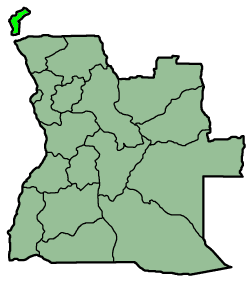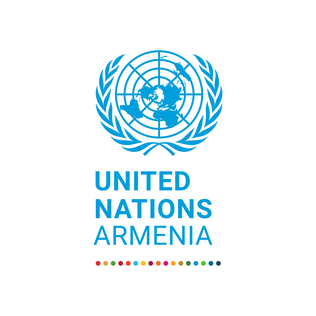
The United Nations Security Council (UNSC) is one of the six principal organs of the United Nations (UN) and is charged with ensuring international peace and security, recommending the admission of new UN members to the General Assembly, and approving any changes to the UN Charter. Its powers include establishing peacekeeping operations, enacting international sanctions, and authorizing military action. The UNSC is the only UN body with the authority to issue binding resolutions on member states.

The United Nations member states are the 193 sovereign states that are members of the United Nations (UN) and have equal representation in the UN General Assembly. The UN is the world's largest intergovernmental organization.

United Nations Security Council resolution 794, adopted unanimously on 3 December 1992, after reaffirming resolutions 733 (1992), 746 (1992), 751 (1992), 767 (1992) and 775 (1992), the Council "[expressed] grave alarm" regarding the situation in Somalia and authorised the creation of the Unified Task Force (UNITAF) to create a "secure environment for humanitarian relief operations in Somalia" in order to provide "essential for the survival of the civilian population". The current resolution determined that "the magnitude of human tragedy caused by the conflict in Somalia, further exacerbated by the obstacles being created to the distribution of humanitarian assistance [constitutes] a threat to international peace and security".

The United Nations Security Council veto power is the power of the five permanent members of the UN Security Council to veto any "substantive" resolution. They also happen to be the nuclear-weapon states (NWS) under the terms of the Treaty on the Non-Proliferation of Nuclear Weapons. However, a permanent member's abstention or absence does not prevent a draft resolution from being adopted. This veto power does not apply to "procedural" votes, as determined by the permanent members themselves. A permanent member can also block the selection of a Secretary-General, although a formal veto is unnecessary since the vote is taken behind closed doors.

The United Nations Regional Groups are the geopolitical regional groups of member states of the United Nations. Originally, the UN member states were unofficially organized into five groups as an informal means of sharing the distribution of posts for General Assembly committees. Now this grouping has taken on a much more expansive and official role. Many UN bodies are allocated on the basis of geographical representation. Top leadership positions, including Secretary-General and President of the General Assembly, are rotated among the regional groups. The groups also coordinate substantive policy and form common fronts for negotiations and bloc voting.

United Nations Security Council resolution 822 was adopted unanimously on 30 April 1993. After expressing concern at the deterioration of relations between Armenia and Azerbaijan, and the subsequent escalation of armed hostilities and deterioration in the humanitarian situation in the region, the Council demanded the immediate cessation of hostilities and the immediate withdrawal of Armenian occupying forces in the Kalbajar district near Nagorno-Karabakh in Azerbaijan.

In United Nations Security Council resolution 853, adopted unanimously on 29 July 1993, after reaffirming Resolution 822 (1993), the Council expressed its concern at the deteriorating relations between Armenia and Azerbaijan and condemned the seizure of the district of Agdam and other areas of Azerbaijan, demanding a complete withdrawal from the areas by Armenians.

United Nations Security Council resolution 884, adopted unanimously on 12 November 1993, after reaffirming resolutions 822 (1993), 853 (1993) and 874 (1993), the Council expressed its concern at the continuing conflict between Armenia and Azerbaijan in Nagorno-Karabakh and condemned violations of the ceasefire between the parties, particularly the occupation of the Zəngilan district and city of Goradiz. Resolution 884 is the fourth and last of the resolutions adopted by the UN Security Council regarding the Nagorno-Karabakh conflict.

United Nations Security Council resolution 808, adopted unanimously on 22 February 1993, after reaffirming Resolution 713 (1991) and subsequent resolutions on the situation in former Yugoslavia, including resolutions 764 (1992), 771 (1992) and 780 (1992), the council, after stating its determination to put an end to crimes such as ethnic cleansing and other violations of international humanitarian law, decided that an international tribunal should be established for the prosecution of persons responsible for serious violations of international humanitarian law committed in former Yugoslavia since 1991. This later became known as the International Criminal Tribunal for the former Yugoslavia.

United Nations Security Council resolution 811, adopted unanimously on 12 March 1993, after reaffirming resolutions 696 (1991), 747 (1992), 785 (1992), 793 (1992) and 804 (1993), the Council expressed its concern at recent fighting and condemned the violations of the "Acordos de Paz" peace agreement in Angola by UNITA, including its rejection of election results and negotiations in addition to its resumption of hostilities.

United Nations Security Council resolution 1107, adopted unanimously on 16 May 1997, after recalling Resolution 1103 (1997) on the United Nations Mission in Bosnia and Herzegovina (UNMIBH) and United Nations International Police Task Force (UN-IPTF) in Bosnia and Herzegovina, the Council authorised a further increase in the number of police personnel of UNMIBH.

United Nations General Assembly Resolution 62/243, titled "The Situation in the Occupied Territories of Azerbaijan", is a resolution of the United Nations General Assembly about the situation in Nagorno-Karabakh, which was adopted on March 14, 2008 at the 62nd session of the General Assembly. It became the seventh United Nations document concerning Nagorno-Karabakh and the third and last United Nations General Assembly document on it.
Organisation of the Islamic Conference Resolution 10/11, titled "The aggression of the Republic of Armenia against the Republic of Azerbaijan", is an Organisation of the Islamic Conference Resolution on Nagorno-Karabakh conflict adopted by its member states on March 13–14, 2008 during the OIC summit in Dakar, Senegal.
Organisation of the Islamic Conference of Foreign Ministers Resolution 10/37, titled "The aggression of the Republic of Armenia against the Republic of Azerbaijan", is a set of three Organisation of the Islamic Conference resolutions on Nagorno-Karabakh conflict adopted at the 37th annual session of Foreign Ministers of OIC member states on May 18–20, 2010 held in Dushanbe, Tajikistan. The session was attended by 80 delegations from member states, observer states and international organizations.

The permanent members of the United Nations Security Council are the five sovereign states to whom the UN Charter of 1945 grants a permanent seat on the UN Security Council: China, France, Russia, the United Kingdom, and the United States.

The political status of Nagorno-Karabakh has remained unresolved since Azerbaijan's recognition as an independent state in 1991. During the Soviet Union, it had been an ethnic Armenian autonomous oblast of the Azerbaijan Soviet Socialist Republic; however, the disintegration of the USSR was accompanied by the conflict between local Armenians who sought to join Nagorno-Karabakh to Armenia, and local Azerbaijanis who opposed this. The conflict soon boiled over into open warfare in the First Nagorno-Karabakh War and ethnic cleansing, as a result of which Nagorno-Karabakh - as well as 7 surrounding regions of Azerbaijan - came to be occupied by an Armenia-allied de facto state, the Republic of Artsakh. Negotiations took place sporadically over the following decades, during which a ceasefire generally prevailed between Armenia / Artsakh and Azerbaijan. Turkey and Azerbaijan closed their borders to Armenia and Artsakh, and took other diplomatic steps to isolate them. Meanwhile, the United Nations Security Council, OSCE Minsk Group, and other bodies made various statements and proposed dialogue initiatives; none of them successful. In the 2020 Nagorno-Karabakh war, Azerbaijani forces, backed by Turkey, entered the Artsakh-held territories and retook the southern half of the region, including Shusha. Armenia was forced to concede additional territories in order to preserve Stepanakert and the northern half of the Republic of Artsakh under local Armenian control. The political status of this reduced region was not specified in the agreement, and remains unresolved.
Azerbaijan has been a member in the United Nations since March 2, 1992, after the UN General Assembly admitted Azerbaijan at its 46th session. The Permanent Mission of the Republic of Azerbaijan was opened in New York City in May 1992. On October 29, 1991, soon after gaining independence from the Soviet Union, Azerbaijan applied to the UN General Assembly for joining the organization. Azerbaijan was elected as a non-permanent member of the UN Security Council for the term of 2012–2013. Through the UN, Azerbaijan has reached out to the international community, especially Europe. Azerbaijan strengthened its relations with the UN by cooperating with UN agencies and bodies such as International Monetary Fund, the World Bank, the World Food Programme, and the financial institutions of the UN.

United Nations Security Council Resolution 2623 called for the eleventh emergency special session of the United Nations General Assembly on the subject of the 2022 Russian invasion of Ukraine. Albania and the United States introduced the resolution before the United Nations Security Council, which adopted it on 27 February 2022. Russia voted against while China, India and the United Arab Emirates abstained. As this was a procedural resolution, no permanent member could exercise their veto power.

The Permanent Mission of Armenia to the United Nations is the diplomatic mission of Armenia to the United Nations.

The United Nations Office in Armenia is the permanent representation of the United Nations in Armenia. Its headquarters are located in Armenia's capital, Yerevan.


















